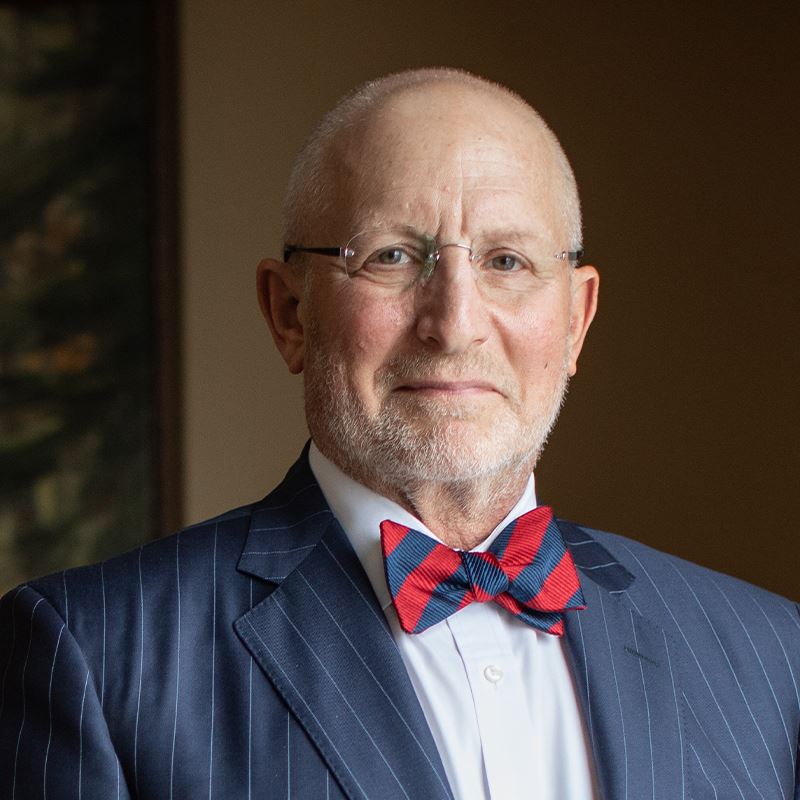 Randall Levine, defense attorney for Rich Baird in the Flint Water Crisis, calls a one-person grand jury a non-transparent and unfair prosecution ploy against defendants.
Randall Levine, defense attorney for Rich Baird in the Flint Water Crisis, calls a one-person grand jury a non-transparent and unfair prosecution ploy against defendants.
In a recent Detroit Free Press article, Levine condemned the use of this rarely-used tactic because defense attorneys do not have an official role during the grand jury proceedings, which they say is a denial of due process.
"We don’t even know, even to this day, what it is that the government claims (Baird) lied about," Levine said in an interview with the Detroit Free Press. "They hide behind the secrecy that’s afforded to them by this one-man grand jury process, all the while Mr. Baird dangles in the wind, his name being smeared."
The one-person grand jury is a process that involves the appointment of a single judge to review evidence out of public view and decide whether charges should be brought, the Free Press reports. In contrast to the way most criminal charges are brought, using a one-person grand jury alters how evidence is turned over to defense attorneys and delays their ability to cross-examine witnesses.
The Free Press article further explains how the one-person grand jury process works:
“The process to convene a one-person grand jury starts with a petition being filed by prosecutors. The petition outlines the scope of the proposed inquiry and then the court decides whether to assign a judge to investigate the matter. Witnesses are subpoenaed andtestify before the appointed judge behind closed doors. The judge determines what charges, if any, should be filed, but does not need to explain why at a public hearing.
“The process is often used to determine who the defendant or defendants should be. Sometimes that might not be known for months into the process,” the story states.
Additionally, the article points out that “prosecutors call the one-person grand jury an essential tool for fighting crime and compelling reluctant witnesses to testify.”
In the Flint Water Crisis case, Levine and other defense attorneys are now asking a Genesee County Circuit Court judge to allow defendants to have a hearing, called a preliminary examination, that allows cross-examination of witnesses before trial, according to the Detroit Free Press. Prosecutors say they aren’t entitled to the hearing. Genesee County Circuit Chief Judge Duncan Beagle said he is now reviewing the Flint water crisis grand jury transcripts before they are released to the defense. Under state court rules, Beagle must release portions of grand jury records that touch on the innocence or guilt of the accused.
Unlike preliminary examinations held before trial, where witnesses testify in courtrooms that are open to the public, a one-person grand jury allows witnesses to testify in a hearing that's confidential, the Free Press reports. Prosecutors are involved in the one-person grand jury process. Defense attorneys of the targets of the investigationare not. Defense attorneys prefer a more open system where they can challenge evidence.
When a one-person grand jury is used, it prevents them from cross-examining testimony in the case until trial, the Free Press article explains. The preliminary examination is skipped because probable cause has already been found by a judge serving as the one-person grand jury.
“I dislike them intensely,” Lillian Diallo, a longtime defense attorney and president of the Wayne County Criminal Defense Bar Association, told the Free Press. “I think they’re really repugnant to justice.”
Some of the Flint water defendants say they still want a pretrial preliminary exam to review and challenge the evidence and probable cause behind the one-person grand juror’s indictments, according to the Free Press. Without such a preliminary exam, the court is violating their due process rights, their attorneys have argued. The attorney general’s office has opposed the request, saying such hearings are not held when charges are brought through a grand jury indictment.
The Free Press reports that both sides are waiting for Genesee County Circuit Judge Elizabeth Kelly to rule on arguments made at an April 6 hearing.
Read the entire Detroit Free Press article, here.

